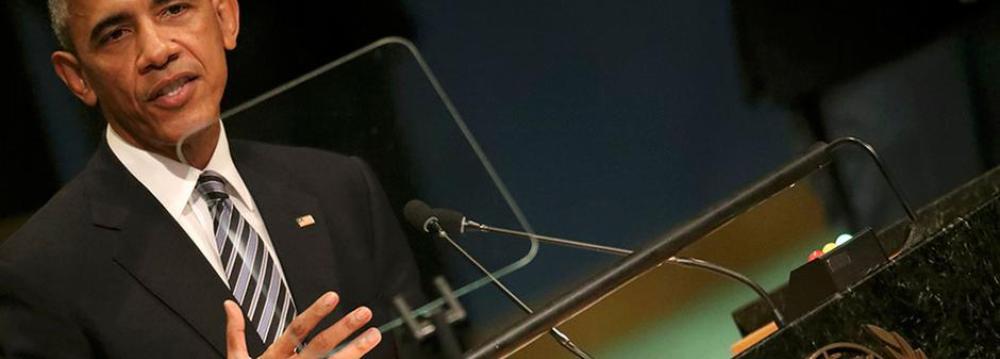US President Barack Obama has told a United Nations summit that the global intake of refugees is set to double in 2016.
Seven EU states are set to admit at least 10 times more migrants than last year. Confirming that dozens of countries had pledged to double the number of refugees resettled to 360,000 in 2016, Obama urged countries to "welcome the stranger in our midst".
"I called this summit because this crisis is one of the most urgent tasks for our time, our capacity for collective action," the US leader said in his final address to the UN General Assembly, DPA reported.
"We cannot avert our eyes or turn our backs to slam the door in the face of these families would betray our deepest values."
Obama praised Germany after it opened its doors to close to 1.5 million people over the past 15 months. During the summit, the Berlin government pledged to continue welcoming those in search of refuge, despite a backlash from many voters in recent state elections against Chancellor Angela Merkel's Christian Democrat party.
"I believe we cannot allow ourselves to stop here. We must finally get ahead in tackling this crisis," German Foreign Minister Frank-Walter Steinmeier said.
Seven countries, namely Romania, Portugal, Spain, Czech Republic, Italy, France and Luxembourg, committed to resettle or admit at least 10 times more refugees than in 2015, according to US officials.
Washington has said the US will raise the number of refugees entering the country by 25,000 to 110,000 in the next fiscal year, which begins in October.
In addition to the increased resettlement commitment, those participating countries in Tuesday's US-led summit pledged to increase their humanitarian aid in 2016 by $4.5 billion compared to last year, Obama added.
Tuesday's summit took place a day after the 193 UN member-states adopted a global plan to confront the current refugee crisis, which has left a record-breaking 65 million people displaced globally, including nine million due to the Syrian conflict. Pledges also included funds for ensuring access to schools for a million refugee children and enabling one million refugees to work legally.
But rights groups dismissed the agreement as falling far short of the needed international response.


